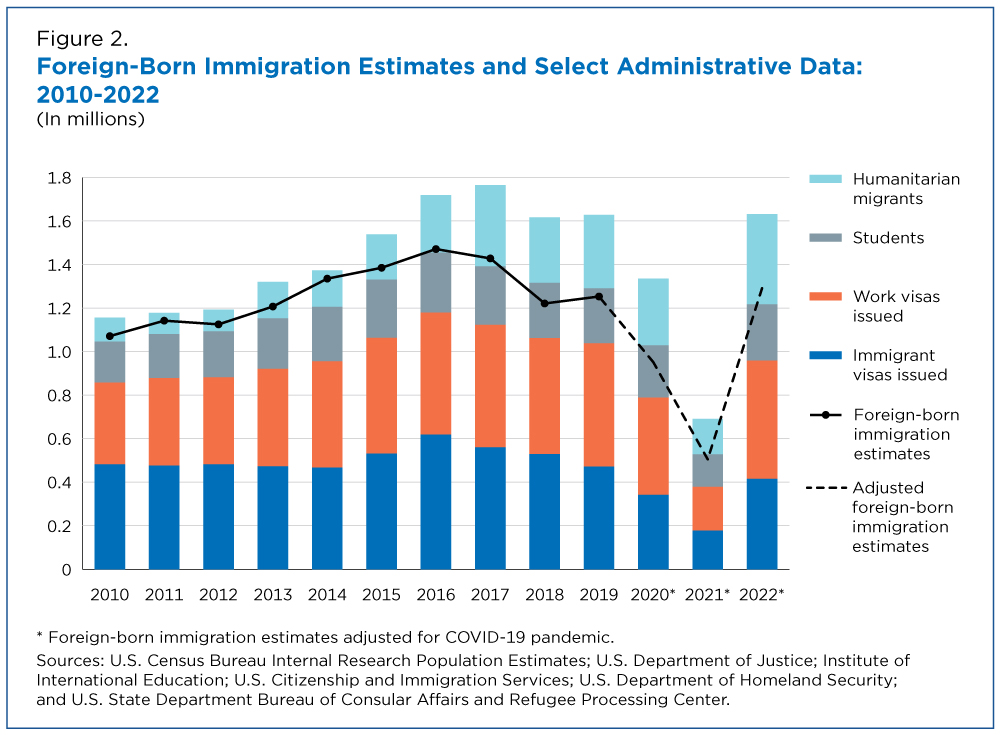Portugal's Shift On Immigration: A Look At Recent Expulsion Policies

Table of Contents
The Rise in Expulsions: Numbers and Trends
Understanding the current state of Portugal immigration requires examining the stark reality of increasing expulsions. Keywords like "Portugal deportation statistics" and "expulsion numbers Portugal" are crucial to understanding this trend.
-
Statistics: While precise, publicly accessible data on expulsions can be challenging to obtain comprehensively, reports from organizations like the Portuguese Refugee Council (Conselho Português para os Refugiados) and Amnesty International Portugal often provide insights into increasing numbers of deportation orders and enforced removals. These figures should be cited whenever possible and consistently updated.
-
Trends: Analysis reveals that expulsions are not uniformly distributed across nationalities. Certain nationalities may face disproportionately higher rates of deportation, depending on factors such as visa violations, criminal activity, or asylum claim rejection. Further research is needed to identify specific trends and patterns.
-
Geographical Distribution: The geographical distribution of expulsions within Portugal may also vary. Specific regions might see a higher concentration of deportation activity due to factors such as proximity to borders or the prevalence of particular immigrant communities.
-
Comparison to Previous Years: Comparing current expulsion rates with those of previous years clearly illustrates the shift towards a stricter approach to immigration enforcement in Portugal. This comparison requires reliable historical data and should be presented visually (e.g., through charts and graphs) for better impact.
Reasons Behind the Policy Shift
The shift towards stricter expulsion policies in Portugal is multifaceted and complex. Understanding the "reasons for stricter immigration laws" requires examining various interconnected factors.
-
Political Factors: Changes in government and shifts in political priorities play a significant role. Analysis of public statements and policies enacted by relevant political figures and parties can reveal the political motivations behind the tightening of immigration laws. The rise of nationalist or populist sentiment within Portugal might also influence this policy shift.
-
Economic Arguments: Economic arguments often justify stricter immigration policies. Concerns about the strain on social services, competition for jobs, and the potential costs associated with supporting immigrants are frequently cited. A critical analysis of these arguments is necessary to assess their validity.
-
Public Opinion and Social Pressures: Public opinion and social pressures significantly influence policy decisions. Surveys and public discourse can reveal prevalent attitudes towards immigration and how they impact policy formulation. Negative media portrayals of immigrants also contribute to these social pressures.
-
EU Regulations and International Pressure: EU regulations and international pressure regarding immigration and asylum also influence Portugal's policies. Compliance with EU directives and adherence to international human rights standards may necessitate adjustments to national immigration policies.
Impact on Immigrant Communities
The impact of stricter expulsion policies on immigrant communities in Portugal is profound and far-reaching. Understanding the "challenges faced by immigrants Portugal" is paramount.
-
Lived Experiences: Gathering firsthand accounts (with informed consent) from immigrants facing deportation is essential to paint a complete picture. These stories provide crucial insights into the human cost of these policies.
-
Legal Challenges: Navigating the legal system while fighting expulsion orders presents significant challenges for immigrants. Limited access to legal aid, language barriers, and the complexity of immigration laws create obstacles.
-
Impact on Families: Family separation due to expulsions causes severe emotional and psychological distress for both those deported and those left behind. The long-term consequences for children and families are significant.
-
Socio-economic Consequences: Expulsions negatively impact both immigrant communities and Portuguese society. The loss of skilled labor, the disruption of established social networks, and the overall economic impact need to be assessed.
Specific Cases and Legal Challenges
Examining "legal cases Portugal immigration" provides insights into the legal battles faced by immigrants fighting deportation.
-
Significant Legal Cases: High-profile legal cases involving deportation can illustrate the legal arguments presented and the outcomes achieved. These cases may highlight inconsistencies or flaws in the application of immigration law.
-
Legal Challenges and Arguments: The legal challenges frequently involve issues of due process, the right to a fair hearing, and the application of international human rights laws.
-
Effectiveness of Legal Aid Organizations: The role of legal aid organizations and NGOs in supporting immigrants facing deportation is crucial. Assessing their effectiveness in providing legal representation and advocacy is essential.
Future Outlook: Potential Reforms and Policy Directions
Predicting the "future of Portugal immigration" requires considering various possibilities.
-
Potential Future Directions: Will Portugal continue on its current trajectory of stricter enforcement, or will there be a shift towards a more balanced approach?
-
Potential Reforms: What specific reforms could be implemented to improve the fairness and transparency of the immigration system? This could include adjustments to asylum procedures or improvements to the integration of immigrants.
-
A More Balanced Approach: Could a more balanced approach be adopted, one that combines stricter enforcement with more effective integration policies and pathways to legal residency?
-
Long-Term Implications: What are the long-term social, economic, and demographic implications of current expulsion policies for Portugal?
Conclusion
This article has explored the significant shift in Portugal's immigration policies, focusing on the increase in expulsion orders. We have examined the contributing factors, the impact on affected communities, and the potential future trajectories of immigration law in Portugal. The reasons behind this shift are complex, involving political, economic, and social considerations. Understanding Portugal's evolving approach to immigration, including its expulsion policies, is crucial. Continue to stay informed about changes in Portugal immigration and the ongoing debates surrounding Portuguese immigration laws to ensure a comprehensive understanding of this complex issue.

Featured Posts
-
 The Voice Season 27 Episode 3 Recap Adam Levines Return To Form
May 14, 2025
The Voice Season 27 Episode 3 Recap Adam Levines Return To Form
May 14, 2025 -
 Portugals Political Landscape Snap Election On The Horizon For May
May 14, 2025
Portugals Political Landscape Snap Election On The Horizon For May
May 14, 2025 -
 Federerovi Blizanci Slike I Detalji O Porodici
May 14, 2025
Federerovi Blizanci Slike I Detalji O Porodici
May 14, 2025 -
 Uruguay La Muerte De Jose Mujica Y Su Impacto Duradero
May 14, 2025
Uruguay La Muerte De Jose Mujica Y Su Impacto Duradero
May 14, 2025 -
 Milano Sanremo 2025 E Sanremo Women Orari Di Passaggio A Imperia
May 14, 2025
Milano Sanremo 2025 E Sanremo Women Orari Di Passaggio A Imperia
May 14, 2025
